#Mary Wimbush
Text
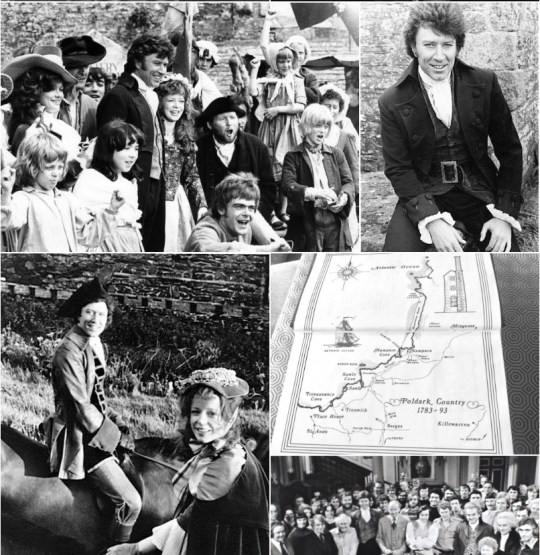


Robin Ellis (Ross Poldark) has shared on his Facebook page that the original Poldark aired for the first time on October 5th, 1975.
He writes:
"...We had no idea that it would catch on as it did...With fond memories of a wonderful cast who were like a great, extended family. Thinking especially of those no longer with us: Angharad Rees, Ralph Bates, Richard Morant, Paul Curran, Mary Wimbush, Frank Middlemass, Forbes Collins - and of course, Winston Graham himself, and his wife Jean..."
Poldark ran for 29 episodes over two series on the BBC. Its audience peaked at 15 million, was sold to over forty countries, and it became the biggest selling costume drama on video until Pride and Prejudice (1995).
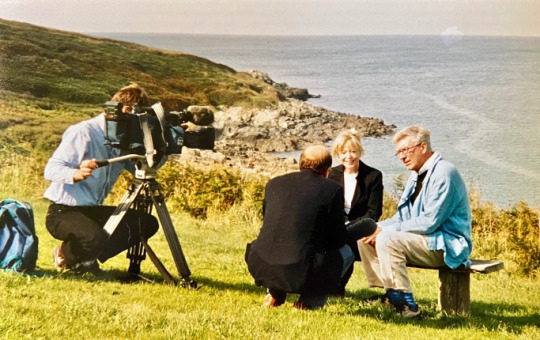
Robin Ellis (Ross Poldark) and Angharad Rees (1944-2012) who played Demelza, interviewed for the series' 25th anniversary
Images from Robin Ellis' Facebook and blog.
#social history#poldark#winston graham#bbc#costume drama#cornwall#classic television#bbc drama#literary adaptation
21 notes
·
View notes
Photo



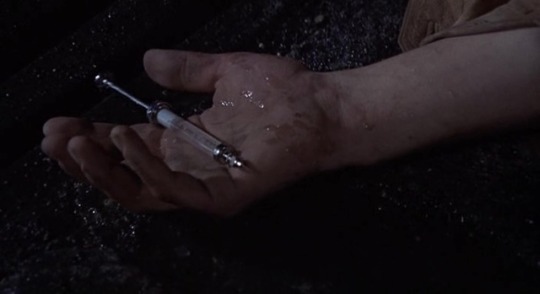
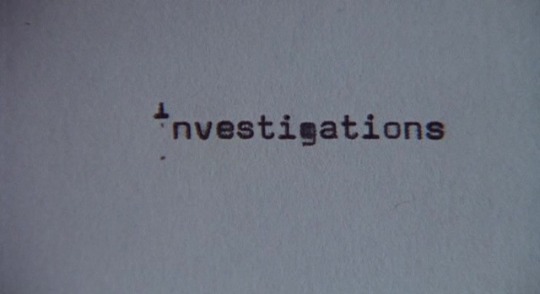

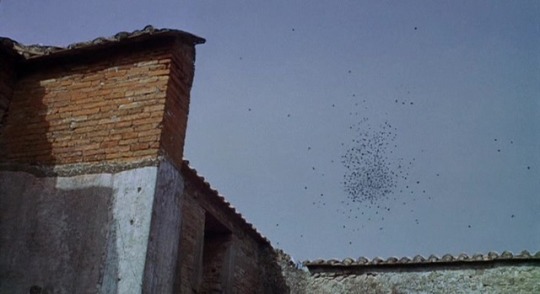


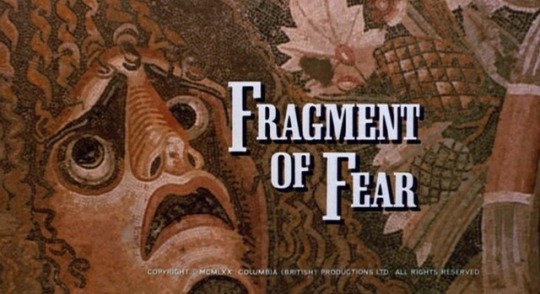
Fragment of Fear | Richard C. Sarafian | 1970
42 notes
·
View notes
Photo
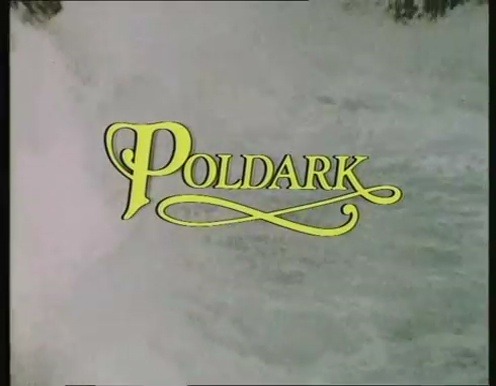

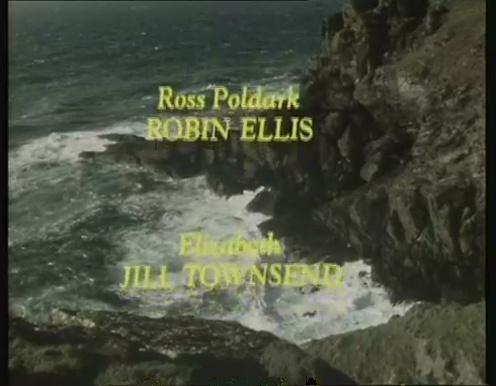

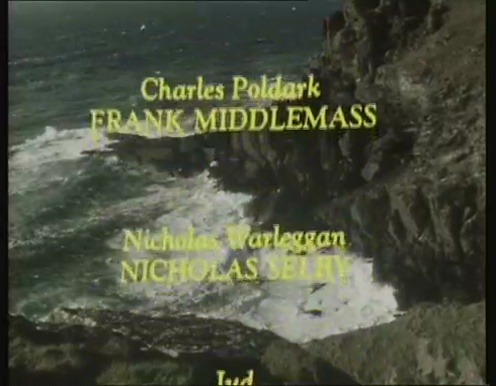
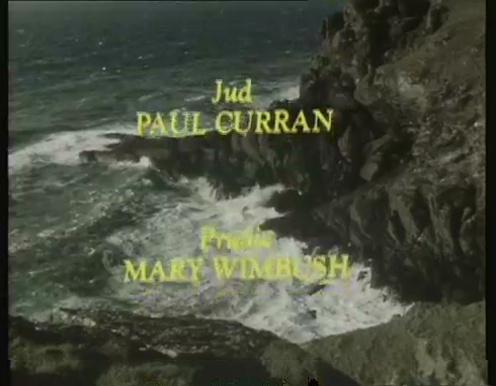
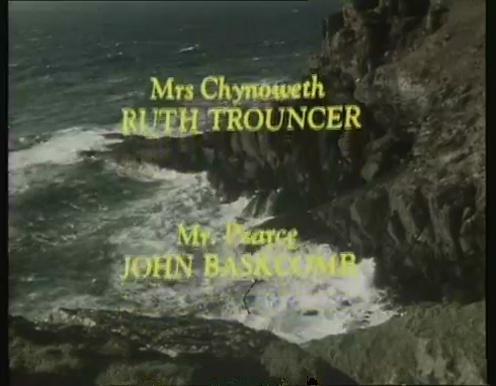
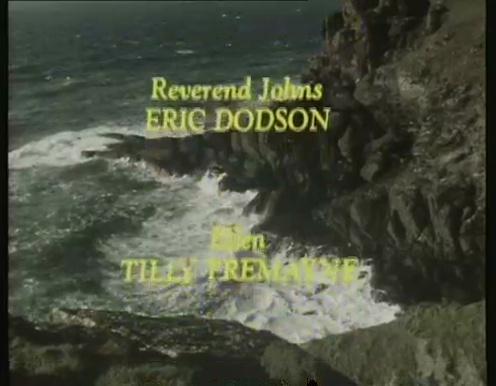
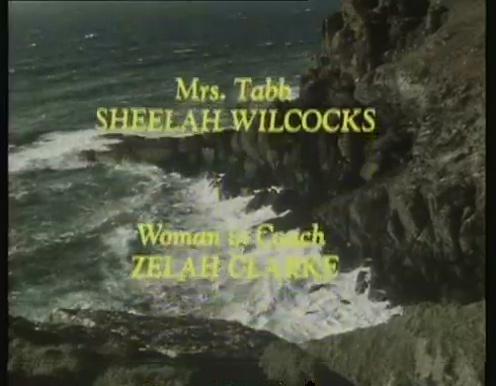
Poldark - BBC One - October 5, 1975 - December 4, 1977
Period Drama (29 episodes)
Running Time: 60 minutes
Stars:
Robin Ellis as Ross Poldark
Angharad Rees as Demelza Carne Poldark
Jill Townsend as Elizabeth Warleggan
Paul Curran as Jud Paynter
Ralph Bates as George Warleggan
Mary Wimbush as Prudie Paynter
Judy Geeson as Caroline Penvenen
Richard Morant as Dr Dwight Enys (Series 1)
Michael Cadman as Dr. Dwight Enys (Series 2)
Sheila White as Karen Daniel (Series 1)
Clive Francis as Francis Poldark (Series 1
Norma Streader as Verity Poldark (Series 1-
Frank Middlemass as Charles Poldark (Series 1)
Nicholas Selby as Nicholas Warleggan
Ruth Trouncer as Mrs. Chenyworth
John Baskcomb as Nat Pearce
Eric Dodson as Reverend Johns (Series 1)
Tilly Tremayne as Ellen (Series 1)
Shelagh Wilcocks as Mrs. Tabb
Eileen Way as Agatha Poledark
Stefan Gates as Geoffrey Charles Poldark
Kevin McNally as Drake Carne
Jane Wymark as Morwenna
Christopher Biggins as Reverend Osborne Whitworth
Julie Dawn Cole as Rowella
#Poldark#TV#BBC One#Period Drama#1970's#Robin Ellis Angharad Rees#Jill Townsend#Paul Curran#Ralph GBates#Mary Wimbush#Judy Geeson
4 notes
·
View notes
Text

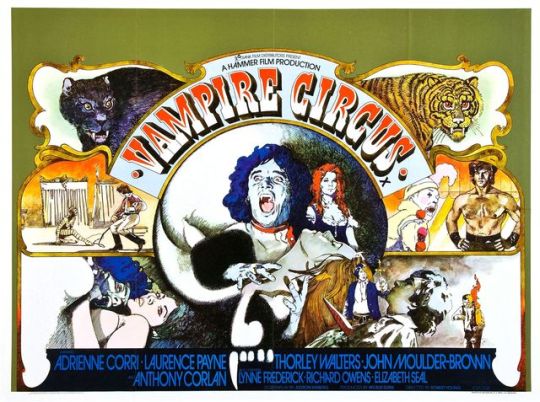

WATCHING
#vampire circus (1972)#hammer horror#hammer films#robert young#adrienne corri#laurence payne#thorley walters#lynne frederick#john moulder-brown#elizabeth seal#anthony higgins#domini blythe#robin hunter#robin sachs#lalla ward#david prowse#mary wimbush#david de keyser#british horror
2 notes
·
View notes
Photo
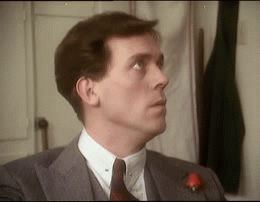






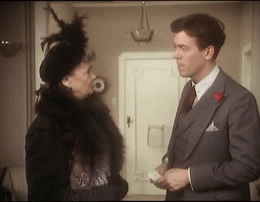
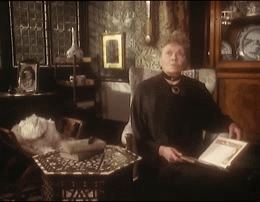

Aunt Agatha (Mary Wimbush), curse of the Woosters.
8 notes
·
View notes
Text
Jeeves and Wooster casting
Because the casting director of this show was on drugs... I decided to compile the various changes in actors throughout the seasons. Because I know it was a pain in the ass for me to keep track of who was who (I thought I had prosopagnosia for a second lol)
Aunt Agatha
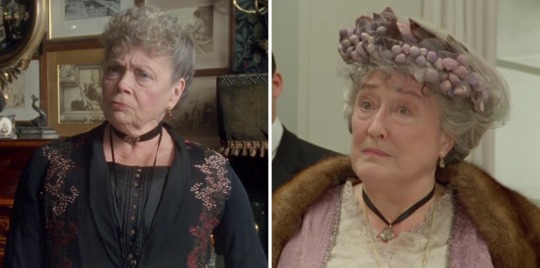
Mary Wimbush (series 1, 2 and 3)
Elizabeth Spriggs (series 4)
Madeline Bassett

Francesca Folan (series 1)
Diana Blackburn (series 2)
Elizabeth Morton (series 3 and 4)
Aunt Dahlia

Brenda Bruce (series 1)
Vivian Pickles (series 2)
Patricia Lawrence (series 3)
Jean Heywood (series 4)
Gussie Fink-Nottle

Richard Garnett (series 1 and 2)
Richard Braine (series 3 and 4)
Bingo Little

Michael Siberry (series 1 and 2)
Pip Torrens (series 3 and 4)
Sir Roderick Glossop
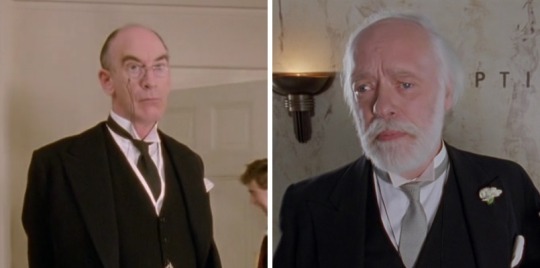
Roger Brierley (series 1 and 2)
Philip Locke (series 4)
Stiffy Byng

Charlotte Attenborough (series 2 and 4)
Amanda Harris (series 3)
Florence Craye

Fiona Gillies (series 3)
Francesca Folan (series 4)
Bonus:
Richard Braine as Rupert Steggles in series 1

#this casting is a mess#i think only tuppy managed to stay the same lol#jeeves and wooster#angel talks#bertie wooster#reginald jeeves#gussie fink-nottle#bingo little#madeline bassett#aunt agatha#aunt dahlia#hugh laurie#stephen fry#long post
241 notes
·
View notes
Text
Harold Washington
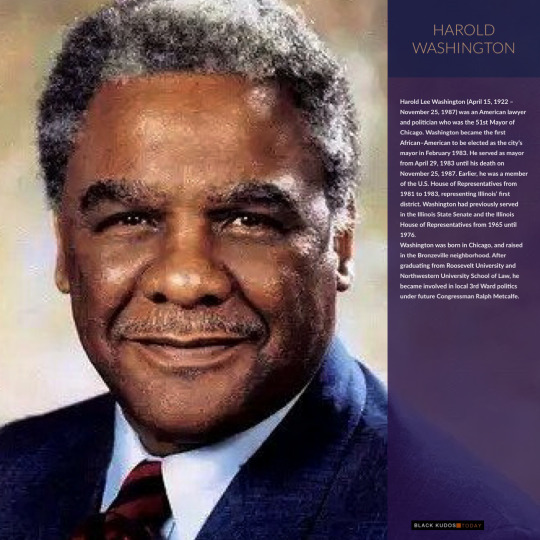
Harold Lee Washington (April 15, 1922 – November 25, 1987) was an American lawyer and politician who was the 51st Mayor of Chicago. Washington became the first African American to be elected as the city's mayor in February 1983. He served as mayor from April 29, 1983 until his death on November 25, 1987. Born in Chicago and raised in the Bronzeville neighborhood, Washington became involved in local 3rd Ward politics under Chicago Alderman and future Congressman Ralph Metcalfe after graduating from Roosevelt University and Northwestern University School of Law. Washington was a member of the U.S. House of Representatives from 1981 to 1983, representing Illinois's first district. Washington had previously served in the Illinois State Senate and the Illinois House of Representatives from 1965 until 1976.
Biography
Ancestry
The earliest known ancestor of Harold Lee Washington, Isam/Isham Washington, was born a slave in 1832 in North Carolina. In 1864 he enlisted in the 8th United States Colored Heavy Artillery, Company L, in Paducah, Kentucky. Following his discharge in 1866, he began farming with his wife Rebecca Neal in Ballard County, Kentucky. Among their six children was Isam/Isom McDaniel (Mack) Washington, who was born in 1875. In 1896, Mack Washington had married Arbella Weeks of Massac County, who had been born in Mississippi in 1878. In 1897, their first son, Roy L. Washington, father of Mayor Washington was born in Ballard County, Kentucky. In 1903, shortly after both families moved to Massac County, Illinois, the elder Washington died. After farming for a time, Mack Washington became a minister in the African Methodist Episcopal (A.M.E.) Church, serving numerous churches in Illinois until the death of his wife in 1952. Reverend I.M.D. Washington died in 1953.
Early life and education
Harold Lee Washington was born on April 15, 1922 at Cook County Hospital in Chicago, Illinois, to Roy and Bertha Washington. While still in high school in Lawrenceville, Illinois, Roy met Bertha from nearby Carrier Mills and the two married in 1916 in Harrisburg, Illinois. Their first son, Roy Jr., was born in Carrier Mills before the family moved to Chicago where Roy enrolled in Kent College of Law. A lawyer, he became one of the first black precinct captains in the city, and a Methodist minister. In 1918, daughter Geneva was born and second son Edward was born in 1920. Bertha left the family, possibly to seek her fortune as a singer, and the couple divorced in 1928. Bertha remarried and had seven more children including Ramon Price, who was an artist and eventually became chief curator of The DuSable Museum of African American History. Harold Washington grew up in Bronzeville, a Chicago neighborhood that was the center of black culture for the entire Midwest in the early and middle 20th century. Edward and Harold stayed with their father while Roy Jr and Geneva were cared by grandparents. After attending St Benedict the Moor Boarding School in Milwaukee from 1928 to 1932, Washington attended DuSable High School, then a newly established racially segregated public high school, and was a member of its first graduating class. In a 1939 citywide track meet, Washington placed first in the 110-meter high hurdles event, and second in the 220-meter low hurdles event. Between his junior and senior year of high school, Washington dropped out, claiming that he no longer felt challenged by the coursework. He worked at a meatpacking plant for a time before his father helped him get a job at the U.S. Treasury branch in the city. There he met Nancy Dorothy Finch, whom he married soon after; Washington was 19 years old and Dorothy was 17 years old. Seven months later, the U.S. was drawn into World War II with the bombing of Pearl Harbor by the Japanese on Sunday, December 7, 1941.
Military service
In 1942, Washington was drafted into the United States Army for the war effort and after basic training, sent overseas as part of a racially segregated unit of the U.S. Army Air Corps unit of Engineers. After the American invasion of the Philippines in 1944, on Leyte Island and later the main Luzon island, Washington was part of a unit building runways for bombers, protective fighter aircraft, refueling planes, and returning damaged aircraft. Eventually, Washington rose to the rank of First Sergeant in the Army Air Corps (later in the war renamed the U.S. Army Air Forces).
Roosevelt College
In the summer of 1946, Washington, aged 24 and a war veteran, enrolled at Roosevelt College (now Roosevelt University). Washington joined other groups of students not permitted to enroll in other local colleges. Local estimates placed the student population of Roosevelt College at about 1/8 black and 1/2 Jewish. A full 75% of the students had enrolled because of the "nondiscriminatory progressive principles." He chaired a fund-raising drive by students, and then was named to a committee that supported citywide efforts to outlaw "restrictive covenants" in housing, the legal means by which minorities (especially blacks ("negroes") and, to a lesser extent, Jews) were prohibited from purchasing real estate in predominantly white neighborhoods of the city.
In 1948, after the college had moved to the Auditorium Building, Washington was elected the third president of Roosevelt's student council. Under his leadership, the student council successfully petitioned the college to have student representation on Roosevelt's faculty committees. At the first regional meeting of the newly founded National Student Association in the spring of 1948, Washington and nine other delegates proposed student representation on college faculties, and a "Bill of Rights" for students; both measures were roundly defeated. The next year, Washington went to the state capital at Springfield to protest Illinois legislators' coming probe of "subversives". The probe of investigation would outlaw the Communist Party and require "loyalty oaths" for teachers. He led students' opposition to the bills, although they would pass later in 1949.
During his Roosevelt College years, Washington came to be known for his stability. His friends said that he had a "remarkable ability to keep cool", reason carefully and walk a middle line. Washington intentionally avoided extremist activities, including street actions and sit-ins against racially segregated restaurants and businesses. Overall, Washington and other radical activists ended up sharing a mutual respect for each other, acknowledging both Washington's pragmatism and the activists' idealism. With the opportunities found only at Roosevelt College in the late 1940s, Washington's time at the Roosevelt College proved to be pivotal. Washington graduated in August 1949, with a Bachelor of Arts (B.A.) degree. In addition to his activities at Roosevelt, he was a member of Phi Beta Sigma fraternity.
Northwestern University School of Law
Washington then applied and was admitted to study law at the Northwestern University School of Law in Chicago. During this time, Washington was divorced from Dorothy Finch. By some accounts, Harold and Dorothy had simply grown apart after Washington was sent overseas during the war during the first year of his marriage. Others saw both as young and headstrong, the relationship doomed from the beginning. Another friend of Washington's deemed Harold "not the marrying kind." He would not marry again, but continued to have relationships with other women; his longtime secretary is said to have said, "If every woman Harold slept with stood at one end of City Hall, the building would sink five inches into LaSalle Street!".
At Northwestern Law School, Washington was the only black student in his class (there were six women in the class, one of them being Dawn Clark Netsch). As at Roosevelt, he entered school politics. In 1951, his last year, he was elected treasurer of the Junior Bar Association (JBA). The election was largely symbolic, however, and Washington's attempts to give the JBA more authority at Northwestern were largely unsuccessful. On campus, Washington joined the Nu Beta Epsilon fraternity, largely because he and the other minorities which constituted the fraternity were blatantly excluded from the other fraternities on campus. Overall, Washington stayed away from the activism that defined his years at Roosevelt. During the evenings and weekends, he worked to supplement his GI Bill income. He received his JD in 1952.
Legislative political career
Working for Metcalfe (1951–1965)
From 1951 until he was first slated for election in 1965, Washington worked in the offices of the 3rd Ward Alderman, former Olympic athlete Ralph Metcalfe. Richard J. Daley was elected party chairman in 1952. Daley replaced C.C. Wimbush, an ally of William Dawson, on the party committee with Metcalfe. Under Metcalfe, the 3rd Ward was a critical factor in Mayor Daley's 1955 mayoral election victory and ranked first in the city in the size of its Democratic plurality in 1961. While working under Metcalfe, Washington began to organize the 3rd Ward's Young Democrats (YD) organization. At YD conventions, the 3rd Ward would push for numerous resolutions in the interest of blacks. Eventually, other black YD organizations would come to the 3rd Ward headquarters for advice on how to run their own organizations. Like he had at Roosevelt College, Washington avoided radicalism and preferred to work through the party to engender change.
While working with the Young Democrats, Washington met Mary Ella Smith. They dated for the next 20 years, and in 1983 Washington proposed to Smith. In an interview with the Chicago Sun-Times, Smith said that she never pressed Washington for marriage because she knew Washington's first love was politics, saying, "He was a political animal. He thrived on it, and I knew any thoughts of marriage would have to wait. I wasn't concerned about that. I just knew the day would come."
In 1959 Al Janney, Gus Savage, Lemuel Bentley, Bennett Johnson, Luster Jackson and others founded the Chicago League of Negro Voters, one of the first African-American political organizations in the city. In its first election, Bentley drew 60,000 votes for city clerk. The endorsement of the League was deciding factor in the re-election of Leon DesPres who was an independent voice in the City Council. Washington was a close friend of the founders of the League and worked with them from time to time. The League was key in electing Anna Langford, William Cousins and A. A. "Sammy" Rayner who were not part of the Daley machine. In 1963 the group moved to racially integrate and formed Protest at the Polls at a citywide conference which Washington independent candidates had gained traction within the black community, winning several aldermanic seats. In 1983, Protest at the Polls was instrumental in Washington's run for mayor. By then, the YDs were losing to independent candidates.
Illinois House (1965–1976)
After the state legislature failed to reapportion districts as required by the census every ten years, an at-large election was held in January 1965 to elect 177 representatives. With the Republicans and Democrats combining to slate only 118 candidates, independent voting groups seized the opportunity to slate candidates. The League of Negro Voters created a "Third Slate" of 59 candidates, announcing the slate on June 27, 1964. Shortly afterwards, Daley put together a slate including Adlai Stevenson III and Washington. The Third Slate was then thrown out by the Illinois Election Board because of "insufficient signatures" on the nominating petitions. In the election, Washington received the second-largest amount of ballots, behind Stevenson. Washington's years in the Illinois House were marked by tension with Democratic Party leadership. In 1967, he was ranked by the Independent Voters of Illinois (IVI) as the fourth-most independent legislator in the Illinois House and named Best Legislator of the Year. His defiance of the "idiot card", a sheet of paper that directed legislators' votes on every issue, attracted the attention of party leaders, who moved to remove Washington from his legislative position. Daley often told Metcalfe to dump Washington as a candidate, but Metcalfe did not want to risk losing the 3rd Ward's Young Democrats, who were mostly aligned with Washington.
Washington backed Renault Robinson, a black police officer and one of the founders of the Afro-American Patrolmen's League (AAPL). The aim of the AAPL was to fight racism directed against minority officers by the rest of the predominantly white department. Soon after the creation of the group, Robinson was written up for minor infractions, suspended, reinstated, and then placed on the graveyard shift to a single block behind central police headquarters. Robinson approached Washington to fashion a bill creating a civilian review board, consisting of both patrolmen and officers, to monitor police brutality. Both black independent and white liberal legislators refused to back the bill, afraid to challenge Daley's grip on the police force.
After Washington announced he would support the AAPL, Metcalfe refused to protect him from Daley. Washington believed he had the support of John Touhy, Speaker of the House and a former party chair. Instead, Touhy criticized Washington and then allayed Daley's anger. In exchange for the party's backing, Washington would serve on the Chicago Crime Commission, the group Daley formed to investigate the AAPL's charges. The commission promptly found the AAPL's charges "unwarranted". An angry and humiliated Washington admitted that on the commission, he felt like Daley's "showcase ni***r". In 1969, Daley removed Washington's name from the slate; only by the intervention of Cecil Partee, a party loyalist, was Washington reinstated. The Democratic Party supported Jim Taylor, a former professional boxer, Streets and Sanitation worker, over Washington. With Partee and his own ward's support, Washington defeated Taylor. His years in the House of Representatives were focused on becoming an advocate for black rights. He continued work on the Fair Housing Act, and worked to strengthen the state's Fair Employment Practices Commission (FEPC). In addition, he worked on a state Civil Rights Act, which would strengthen employment and housing provisions in the federal Civil Rights Act of 1964. In his first session, all of his bills were sent to committee or tabled. Like his time in Roosevelt College, Washington relied on parliamentary tactics (e.g., writing amendments guaranteed to fail in a vote) to enable him to bargain for more concessions.
Washington was accused of failure to file a tax return, even though the tax was paid. He was found guilty and sentenced to 36 days in jail. (1971)
Washington also passed bills honoring civil rights figures. He passed a resolution honoring Metcalfe, his mentor. He also passed a resolution honoring James J. Reeb, a Unitarian minister who was beaten to death in Selma, Alabama by a segregationist mob. After the assassination of Martin Luther King, Jr., he introduced a series of bills aimed at making King's birthday a state holiday. The first was tabled and later vetoed. The third bill he introduced, which was passed and signed Gov. Richard Ogilvie, made Dr. King's birthday a commemorative day observed by Illinois public schools. It was not until 1973 that Washington was able, with Partee's help in the Senate, to have the bill enacted and signed by the governor.
1975 speakership campaign
Washington ran a largely symbolic campaign for Speaker. He only received votes from himself and from Lewis A. H. Caldwell. However, with a divided Democratic caucus, this was enough to help deny Daley-backed Clyde Choate the nomination, helping to throw it to William A. Redmond after 92 rounds of voting.
Redmond had Washington appointed as chairman of the Judiciary Committee.
Illinois Senate (1976–1980)Campaign for Illinois Senate
In 1975, Partee, now President of the Senate and eligible for his pension, decided to retire from the Senate. Although Daley and Taylor declined at first, at Partee's insistence, Washington was ultimately slated for the seat and received the party's support. Daley had been displeased with Washington for having run a symbolic challenge in 1975 to Daley-backed Clyde Choate for Illinois Speaker of the House (Washington had only received two votes). He had also helped ultimately push the vote towards Redmond as a compromise candidate. The United Automobile Workers union, whose backing Washington obtained, were critical in persuading Daley to relent to back his candidacy.
Washington defeated Anna Langford by nearly 2,000 votes in the Democratic primary. He went on to win the general election.
Human Rights Act of 1980
In the Illinois Senate, Washington's main focus worked to pass 1980's Illinois Human Rights Act. Legislators rewrote all of the human rights laws in the state, restricting discrimination based on "race, color, religion, sex, national origin, ancestry, age, marital status, physical or mental disability, military status, sexual orientation, or unfavorable discharge from military service in connection with employment, real estate transactions, access to financial credit, and the availability of public accommodations." The bill's origins began in 1970 with the rewriting of the Illinois Constitution. The new constitution required all governmental agencies and departments to be reorganized for efficiency. Republican governor James R. Thompson reorganized low-profile departments before his re-election in 1978. In 1979, during the early stages of his second term and immediately in the aftermath of the largest vote for a gubernatorial candidate in the state's history, Thompson called for human rights reorganization. The bill would consolidate and remove some agencies, eliminating a number of political jobs. Some Democratic legislators would oppose any measure backed by Washington, Thompson and Republican legislators.
For many years, human rights had been a campaign issue brought up and backed by Democrats. Thompson's staffers brought the bill to Washington and other black legislators before it was presented to the legislature. Washington made adjustments in anticipation of some legislators' concerns regarding the bill, before speaking for it in April 1979. On May 24, 1979, the bill passed the Senate by a vote of 59 to 1, with two voting present and six absent. The victory in the Senate was attributed by a Thompson staffer to Washington's "calm noncombative presentation". However, the bill stalled in the House. State Representative Susan Catania insisted on attaching an amendment to allow women guarantees in the use of credit cards. This effort was assisted by Carol Moseley Braun, a representative from Hyde Park who would later go on to serve as a U.S. Senator. State Representatives Jim Taylor and Larry Bullock introduced over one hundred amendments, including the text of the first ten amendments to the U.S. Constitution, to try to stall the bill. With Catania's amendment, the bill passed the House, but the Senate refused to accept the amendment. On June 30, 1979, the legislature adjourned.
U.S. House (1981–1983)
In 1980, Washington was elected to the U.S. House of Representatives in Illinois's 1st congressional district. He defeated incumbent Representative Bennett Stewart in the Democratic primary. Anticipating that the Democratic Party would challenge him in his bid for re-nomination in 1982, Washington spent much of his first term campaigning for re-election, often travelling back to Chicago to campaign. Washington missed many House votes, an issue that would come up in his campaign for mayor in 1983. Washington's major congressional accomplishment involved legislation to extend the Voting Rights Act, legislation that opponents had argued was only necessary in an emergency. Others, including Congressman Henry Hyde, had submitted amendments designed to seriously weaken the power of the Voting Rights Act.
Although he had been called "crazy" for railing in the House of Representatives against deep cuts to social programs, Associated Press political reporter Mike Robinson noted that Washington worked "quietly and thoughtfully" as the time came to pass the act. During hearings in the South regarding the Voting Rights Act, Washington asked questions that shed light on tactics used to prevent African Americans from voting (among them, closing registration early, literacy tests, and gerrymandering). After the amendments were submitted on the floor, Washington spoke from prepared speeches that avoided rhetoric and addressed the issues. As a result, the amendments were defeated, and Congress passed the Voting Rights Act Extension. By the time Washington faced re-election in 1982, he had cemented his popularity in the 1st Congressional District. Jane Byrne could not find one serious candidate to run against Washington for his re-election campaign. He had collected 250,000 signatures to get on the ballot, although only 610 signatures (0.5% of the voters in the previous election) were required. With his re-election to Congress locked up, Washington turned his attention to the next Chicago mayoral election.
Mayor of Chicago (1983–1987)
1983 election
In the February 22, 1983, Democratic mayoral primary, more than 100,000 new voters registered to vote led by a coalition that included the Latino reformed gang Young Lords led by Jose Cha Cha Jimenez. On the North and Northwest Sides, the incumbent mayor Jane Byrne led and future mayor Richard M. Daley, son of the late Mayor Richard J. Daley, finished a close second. Harold Washington had massive majorities on the South and West Sides. Southwest Side voters overwhelmingly supported Daley. Washington won with 37% of the vote, versus 33% for Byrne and 30% for Daley. Although winning the Democratic primary was normally considered tantamount to election in heavily Democratic Chicago, after his primary victory Washington found that his Republican opponent, former state legislator Bernard Epton (earlier considered a nominal stand-in), was supported by many high-ranking Democrats and their ward organizations, including the chairman of the Cook County Democratic Party, Alderman Edward Vrdolyak.
Epton's campaign referred to, among other things, Washington's conviction for failure to file income tax returns (he had paid the taxes, but had not filed a return). Washington, on the other hand, stressed reforming the Chicago patronage system and the need for a jobs program in a tight economy. In the April 12, 1983, mayoral general election, Washington defeated Epton by 3.7%, 51.7% to 48.0%, to become mayor of Chicago. Washington was sworn in as mayor on April 29, 1983, and resigned his Congressional seat the following day.
First term and Council Wars
During his tenure as mayor, Washington lived at the Hampton House apartments in the Hyde Park neighborhood of Chicago. He created the city's first environmental-affairs department under the management of longtime Great Lakes environmentalist Lee Botts. Washington's first term in office was characterized by conflict with the city council dubbed "Council Wars", referring to the then-recent Star Wars films and caused Chicago to be nicknamed "Beirut on the Lake". A 29-alderman City Council majority refused to enact Washington's legislation and prevented him from appointing nominees to boards and commissions. First-term challenges included city population loss and a massive decrease in ridership on the Chicago Transit Authority (CTA). Assertions that the overall crime rate increased were incorrect.
The 29, also known as the "Vrdolyak 29", were led by Vrdolyak (who was an Alderman in addition to Cook County Democratic Party chairman) and Finance Chair, Alderman Edward Burke. Parks superintendent Edmund Kelly also opposed the mayor. The three were known as "the Eddies" and were supported by the younger Daley (now State's Attorney), U.S. Congressmen Dan Rostenkowski and William Lipinski, and much of the Democratic Party. During his first city council meeting, Washington and the 21 supportive aldermen walked out of the meeting after a quorum had been established. Vrdolyak and the other 28 then chose committee chairmen and assigned aldermen to the various committees. Later lawsuits submitted by Washington and others were dismissed because it was determined that the appointments were legally made. Washington ruled by veto. The 29 lacked the 30th vote they needed to override Washington's veto; female and African American aldermen supported Washington despite pressure from the Eddies. Meanwhile, in the courts, Washington kept the pressure on to reverse the redistricting of city council wards that the city council had created during the Byrne years. During special elections in 1986, victorious Washington-backed candidates in the first round ensured at least 24 supporters in the city council. Six weeks later, when Marlene Carter and Luís Gutiérrez won run-off elections, Washington had the 25 aldermen he needed. His vote as president of the City Council enabled him to break 25–25 tie-votes and enact his programs.
1987 election
Washington defeated former mayor Jane Byrne in the February 24, 1987 Democratic mayoral primary by 7.2%, 53.5% to 46.3%, and in the April 7, 1987 mayoral general election defeated Vrdolyak (Illinois Solidarity Party) by 11.8%, 53.8% to 42.8%, with Northwestern University business professor Donald Haider (Republican) getting 4.3%, to win reelection to a second term as mayor. Cook County Assessor Thomas Hynes (Chicago First Party), a Daley ally, dropped out of the race 36 hours before the mayoral general election. During Washington's short second term, the Eddies lost much of their power: Vrdolyak became a Republican, Kelly was removed from his powerful parks post, and Burke lost his Finance Committee chairmanship.
Political Education Project (PEP)
From March 1984 to 1987, the Political Education Project (PEP) served as Washington's political arm, organizing both Washington's campaigns and the campaigns of his political allies. Harold Washington established the Political Education Project in 1984. This organization supported Washington's interests in electoral politics beyond the Office of the Mayor. PEP helped organize political candidates for statewide elections in 1984 and managed Washington's participation in the 1984 Democratic National Convention as a "favorite son" presidential candidate. PEP used its political connections to support candidates such as Luis Gutiérrez and Jesús "Chuy" García through field operations, voter registration and Election Day poll monitoring. Once elected, these aldermen helped break the stalemate between Washington and his opponents in the city council. Due to PEP's efforts, Washington's City Council legislation gained ground and his popularity grew as the 1987 mayoral election approached. In preparation for the 1987 mayoral election, PEP formed the Committee to Re-Elect Mayor Washington. This organization carried out fundraising for the campaign, conducted campaign events, and coordinated volunteers. PEP staff members, such as Joseph Gardner and Helen Shiller, went on to play leading roles in Chicago politics.
The organization disbanded upon Harold Washington's death. Harold Washington's Political Education Project Records is an archival collection detailing the organization's work. It is located in the Chicago Public Library Special Collections, Harold Washington Library Center, Chicago, Illinois.
Legal issues
In addition to Daley's strong-arm tactics, Washington's time in the Illinois House was also marred by problems with tax returns and allegations of not performing services owed to his clients. In her biography, Levinsohn questions whether the timing of Washington's legal troubles was politically motivated. In November 1966, Washington was re-elected to the House over Daley's strong objections; the first complaint was filed in 1964; the second was filed by January 1967. A letter asking Washington to explain the matter was sent on January 5, 1967. After failing to respond to numerous summons and subpoenas, the commission recommend a five-year suspension on March 18, 1968. A formal response to the charges did not occur until July 10, 1969. In his reply, Washington said that "sometimes personal problems are enlarged out of proportion to the entire life picture at the time and the more important things are abandoned." In 1970, the Board of Managers of the Chicago Bar Association ruled that Washington's license be suspended for only one year, not the five recommended; the total amount in question between all six clients was $205.
In 1971, Washington was charged with failure to file tax returns for four years, although the Internal Revenue Service (IRS) claimed to have evidence for nineteen years. Judge Sam Perry noted that he was "disturbed that this case ever made it to my courtroom" — while Washington had paid his taxes, he ended up owing the government a total of $508 as a result of not filing his returns. Typically, the IRS handled such cases in civil court, or within its bureaucracy. Washington pleaded "no contest" and was sentenced to forty days in Cook County Jail, a $1,000 fine, and three years of probation.
Death and funeral
On November 25, 1987, at 11:00 am, Chicago Fire Department paramedics were called to City Hall. Washington's press secretary, Alton Miller, had been discussing school board issues with the mayor when Washington suddenly slumped over on his desk, falling unconscious. After failing to revive Washington in his office, paramedics rushed him to Northwestern Memorial Hospital. Further attempts to revive him failed, and Washington was pronounced dead at 1:36 pm At Daley Plaza, Patrick Keen, project director for the Westside Habitat for Humanity, announced Washington's official time of death to a separate gathering of Chicagoans. Initial reactions to the pronouncement of his death were of shock and sadness, as many blacks believed that Washington was the only top Chicago official who would address their concerns. Thousands of Chicagoans attended his wake in the lobby of City Hall between November 27 and 29, 1987. On November 30, 1987, Reverend B. Herbert Martin officiated Washington's funeral service in Christ Universal Temple at 119th Street and Ashland Avenue in Chicago. After the service, Washington was buried in Oak Woods Cemetery on the South Side of Chicago.
Rumors
Immediately after Washington's death, rumors about how Washington died began to surface. On January 6, 1988, Dr. Antonio Senat, Washington's personal physician, denied "unfounded speculations" that Washington had cocaine in his system at the time of his death, or that foul play was involved. Cook County Medical Examiner Robert J. Stein performed an autopsy on Washington and concluded that Washington had died of a heart attack. Washington had weighed 284 pounds (129 kg), and suffered from hypertension, high cholesterol levels, and an enlarged heart. On June 20, 1988, Alton Miller again indicated that drug reports on Washington had come back negative, and that Washington had not been poisoned prior to his death. Dr. Stein stated that the only drug in Washington's system had been lidocaine, which is used to stabilize the heart after a heart attack takes place. The drug was given to Washington either by paramedics or by doctors at Northwestern Memorial Hospital. Bernard Epton, Washington's opponent in the 1983 general election, died 18 days later, on December 13, 1987.
Legacy
At a party held shortly after his re-election on April 7, 1987, Washington said to a group of supporters, "In the old days, when you told people in other countries that you were from Chicago, they would say, 'Boom-boom! Rat-a-tat-tat!' Nowadays, they say [crowd joins with him], 'How's Harold?'!"
In later years, various city facilities and institutions were named or renamed after the late mayor to commemorate his legacy. The new building housing the main branch of the Chicago Public Library, located at 400 South State Street, was named the Harold Washington Library Center. The Chicago Public Library Special Collections, located on the building's 9th floor, house the Harold Washington Archives and Collections. These archives hold numerous collections related to Washington's life and political career.
Five months after Washington's sudden death in office, a ceremony was held on April 19, 1988, changing the name of Loop College, one of the City Colleges of Chicago, to Harold Washington College. Harold Washington Elementary School in Chicago's Chatham neighborhood is also named after the former mayor. In August 2004, the 40,000-square-foot (3,700 m2) Harold Washington Cultural Center opened to the public in the Bronzeville neighborhood. Across from the Hampton House apartments where Washington lived, a city park was renamed Harold Washington Park, which was known for "Harold's Parakeets", a colony of feral monk parakeets that inhabited Ash Trees in the park. A building on the campus of Chicago State University is named Harold Washington Hall.
Six months after Washington's death, School of the Art Institute of Chicago student David Nelson painted Mirth & Girth, a full-length portrait depicting Washington wearing women's lingerie. The work was unveiled on May 11, 1988, opening day of SAIC's annual student exhibition. Within hours, City aldermen and members of the Chicago Police Department seized the painting. It was later returned, but with a five-inch (13 cm) gash in the canvas. Nelson, assisted by the ACLU, filed a federal lawsuit against the city, claiming that the painting's confiscation and subsequent damaging violated his First Amendment rights. The complainants eventually split a US$95,000 (1994, US$138,000 in 2008) settlement from the city.
2 notes
·
View notes
Photo

Vampire Circus - Blood and Boobies
I remember catching a little bit of this movie many years ago on the late show, and I've been curious to see the whole thing, so I queued it up on the Netflix streaming menu yesterday afternoon when I had a few hours to kill.
This is a story of a small town who kills off a local 'vampire baron' in the first reel, who swears vengeance on the town's children upon his death. Years later, while the town is in the grip of a deadly plague, and is cut off from the rest of the world by fiercely defended roadblocks, a mysterious circus of gypsies arrives in town and sets up shop. Of course, many of the circus performers are vampires and end up wreaking havoc on the townsfolk, culminating in a bloody climax where nearly everyone expires.
Not half bad, and seeing as how circus performers are fairly creepy to begin with (especially clowns), these vampires are a little creepier than most. There's a shape shifting sultry eyed young man who spends some of his time as a panther in a cage, and the rest of the time seducing the young women in town, a creepy dwarf clown, a muscle bound strongman in short shorts (David Prowse, who ends up playing the 'body' for Darth Vader in the Star Wars movies), a gypsy woman ringleader, and a pair of incestuous twin brother/sister vampires who do an acrobatics act and lure little children into the 'house of mirrors'. Turns out the circus performers are cousins of the slain vampire, and they have a plan to bring him back to life using the blood of the slain children.
Seeing as this low budget shocker was made in the seventies, there is a fair amount of blood and gore, and plenty of opportunities for women victims to take their clothes off. Despite some silly special effects here and there, though, it is a pretty decent little horror film.
3 stars out of 5
Released 1972, First Viewing October 2010
#1972#Anthony Higgins#Horror#John Moulder-Brown#Lalla Ward#Mary Wimbush#Robert Young#Thorley Walters#Vampire
0 notes
Text
"POLDARK" Series One (1975): Episodes Nine to Twelve
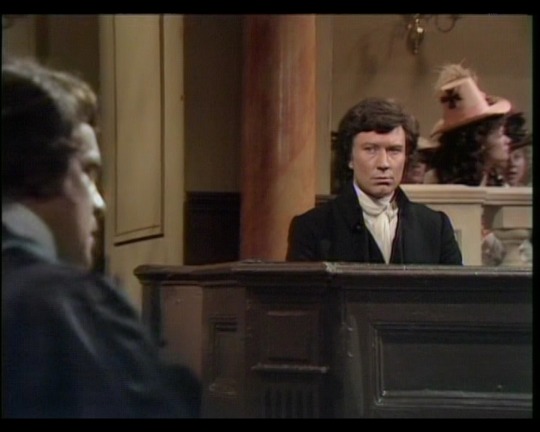
"POLDARK" SERIES ONE (1975): EPISODES NINE TO TWELVE
It has been a while since I had last viewed "POLDARK", the BBC's 1975-77 adaptation of Winston Graham's literary series about the post-war life of a British Army officer American Revolutionary War veteran named Ross Poldark. Real life and several movies releases distracted my attention from the series. Eventually, I found the time to watch Series One's adaptation of Graham's 1950 novel, "Jeremy Poldark: A Novel of Cornwall, 1790-1791".
Episode Eight had ended on a grim note. Ross' new smelting company ended in failure after his cousin Francis Poldark revealed the shareholders' names to the former's rival, George Warleggan. Ross now finds himself in financial straights. Francis was stricken with Putrid's Throat and Ross' wife, Demelza Carne Poldark, helped Francis' wife, Elizabeth Chynoweth Poldark, nurse the stricken man back to health. Unfortunately, both Demelza and young daughter Julia were stricken with the same illness. Demelza recovered. Julia did not. Following Julia's death, one of the Warleggans' ships were wrecked off the coast of Poldark land. Despite Ross' efforts to conduct a rescue of the survivors (in this version, at least), many of the locals salvaged the goods from the ship and caused a riot on the ship. The episode ended with Ross being arrested for instigating the riot.
Episode Nine began with Ross' return to his estate, Nampara, after spending a short period in jail. While he prepares to find a barrister (attorney) to represent him in court, Demelza tries to recruit help from the local gentry to have the charges dropped against Ross or ensure a not guilty verdict. Much against Ross' wishes, who stubbornly wants to guarantee his freedom on his own. Ross' friend, Dr. Dwight Enrys, meets the spoiled heiress Caroline Peneven, when she mistakes him for a veterinarian for her pug. Francis, who continues to feels guilty over his betrayal of the Carnmore Copper Company, sinks to a new low before sets out to make amends with Ross. And George and Nicholas Warleggan, who had arranged Ross' arrest in the first place, tries to guarantee a guilty verdict for Ross by bribing the latter's former servant, Jud Paynter, to testify against him.
Following the trial in which Ross is exonerated, the Poldarks at both Nampara and Trenwith are forced to deal with their low financial straits. Ross and Francis reconcile and make plans to re-open Wheal Grace and dig for copper. To finance re-opening the mine, Ross allows local smugglers led by a man named Mr. Trencom to use the cove on Nampara land for a smuggling operation. Demelza is against the idea, but Ross refuses to listen to her. Meanwhile, Demelza discovers that she is pregnant with their second child. Due to their financial straits and the trauma of baby Julia's death, she fears that Ross will be unhappy by the news of her pregnancy. Demelza also resorts to solo fishing trips behind her husband's back to provide food for Nampara's inhabitants, while Ross' finances suffer. In fact, Episode Twelve ends with a very pregnant Demelza struggling to row back to the shore, while she goes into labor.
What can I say about the 1975 adaptation of "Jeremy Poldark: A Novel of Cornwall, 1790-1791"? I have mixed feelings about it. Perhaps my feelings for this adaptation is due to the source material. "Jeremy Poldark" is probably the shortest novel in Graham's twelve-book series. A novel's lenghth should not determine one's opinion of it. But if I must be brutally honest, I do not have a high regard for "Jeremy Poldark". It seemed more like a filler episode of a television series with a long-term narrative structure. The most interesting aspects of the novel were the emotional estrangement between Ross and Demelza, following their daughter's death and his deal with smugglers; Francis' attempt to reconcile with Ross; and of course, Ross' trial for the riot that had occurred near the end of "Demelza - A Novel of Cornwall, 1788-1790".
Episode Nine mainly focused on Ross' preparations for the trial, Demelza's attempts to seek help for him, and the Warleggans' preparations to ensure that Ross will be convicted. That included recruiting Jud Paynter to testify against Ross. It was a pretty interesting episode. Somewhat. I thought the episode featured a colorful quality once the setting shifted to Bodmin for both the trial and upcoming local elections. It also featured a colorful assembly ball where Demelza, wearing the same gown she had worn at the Warleggans' ball in Episode Six, tries to recruit support and help for Ross. The episode ended with a cliffhanger, as Francis Poldark, who was also at the ball and in Bodmin to support Ross, contemplates committing suicide with a pistol in his hand.
Episode Eleven mainly focused on Ross and Demelza's separate efforts to maintain their survival and rejuvenate their fortunes. And for the first time, the series delved into the strains that their their problems and Julia's death had placed upon their marriage. For Ross and Demelza, the honeymoon is finally over and I could not be any more happier. There is nothing that will bore me quicker than an idealized romance. Finally, the saga settles down to forcing the couple to work at making their marriage work. And I have to give credit to both Robin Ellis and Angharad Rees for their skillful portrayal of Ross and Demelza's struggles to make their marriage work. This was especially apparent in one scene that featured a quarrel between the couple following a supper party they had attended at Trenwith. Sometime during the evening, Ross and his former love, Elizabeth Chynoweth Poldark, had the opportunity for a private conversation that ended with Ross complimenting her appearance. Unfortunately, Demelza appeared and was able to overhear his compliment. Which would explained the Ross and Demelza's quarrel.
Ever since the current adaptation of "POLDARK" had first aired, I have encountered complaints about how actor Kyle Soller had portrayed Francis Poldark as an ill-tempered loser during the show's first season. To be honest, Clive Francis had did the same in the 1975 adaptations of "Ross Poldark: A Novel of Cornwall, 1783-1787" and "Demelza". I noticed that once Francis had put his friendship with the manipulative George Warleggan behind him and reconciled with Ross, he finally became that wry and witty man that so many had commented about. And the actor gave a very charming and subtle performance.
I also enjoyed the portrayal of the burgeoning romance between Dr. Dwight Enys and heiress Caroline Penvenen, thanks to Richard Morant and Judy Geeson's sparkling performances. The beginning of their relationship reminded me of the numerous Hollywood comedies between the late 1950s and mid 1960s. This was especially highlighted by Caroline's mistaken assumption that Dwight was more of a veterinarian and the latter's subtle contempt toward her privileged behavior. In a way, I find their relationship a bit more realistic than the one between Ross and Demelza. Dwight and Caroline's relationship strike me as good example of how class differences can effect a potential romance between two people of such disparate backgrounds.
But the one episode that I truly enjoyed was Episode Ten. It featured the assizes in Bodmin and especially Ross' trial. If I must be brutally honest, Episode Ten did not feature one of Robin Ellis' best performances as Ross Poldark. He spent most of the episode looking rather stoic and occasionally, disapproving. It seemed as if the world of 18th century Cornwall had merely revolved around him. And a colorful world it turned out to be. The excitement actually began in the second half of Episode Nine, which featured the local elections, a local ball and the preparations for Ross' trial. But it was the assizes itself, which included Ross' trial that made Episode Ten fascinated for me. Not only did it feature Ross' trial, filled with attempts by the corrupt prosecutor to circumvent the law; but also another in which a woman was convicted for a minor crime and punished with a public whipping.
At least three performances made Episode Ten very interesting. One of those performances came from Paul Curran, who portrayed Ross' former servant (at the time), Jud Paynter. Curran's Jud spent most of the episode getting drunk in order to shore up his courage to testify against Ross. It almost seemed as if Curran had to sustain the image of a drunken Jud throughout the entire episode. He also had to constantly irritate George Warleggan, portrayed by Ralph Bates. And the latter is the second performance that really caught my interest. I really enjoyed Bates in this episode. His George Warleggan was a man irritated not only by Jud's drunkeness, but also by the tight-fisted Nicholas Warleggan. Bates did an excellent job in basically portraying a straight man to a pair of comic performances. That second comic performance belonged to Nicholas Selby, who gave a rather subtle, yet funny performance as the venal, yet penny-pinching Nicholas. Poor George. His father is vindictive enough to demand that Ross suffers for the looting of his shipwrecked ship, but cheap enough to demand that George pay a small amount to arrange for Ross' conviction. Talk about a man between a rock and a hard place.
Despite these narrative and character virtues, I still remained somewhat unimpressed by Episodes Nine to Twelve. I was not impressed by how screenwriters Peter Draper and Paul Wheeler, along with director Kenneth Ives; structured the narrative for these episodes. One, their use of cliffhangers seemed a bit off kilter to me. In two episodes - Episodes Nine and Ten - the screenwriters and the director used cliffhangers to tell the audience what happened and not show. Episode Nine ended with a despondent Francis Poldark pressing a pistol to his head, as he prepared to commit suicide. Yet, there was no gunshot or anything to hint what happened. Audiences did not learn that the suicide attempt had failed due to the pistol's misfire in a conversation between Francis and Dwight Enys. I found this handling of Francis' suicide attempt extremely annoying. Apparently, it was easier for Draper and Ives to tell the audience what happened via Francis' revelation than show it.
As for Episode Ten, it ended with the judge about to announce the verdict at the end of Ross' trial. But audiences did not learn about the verdict, until George Warleggan had informed his father . . . at the beginning of Episode Eleven. It seemed ridiculously unnecessary to end Episode Ten in this manner. Worse, it was another example of the writer and director telling what happened, instead of showing. Speaking of "episodic interruptus", Episode Twelve, which is the last one that served as an adaptation of "Jeremy Poldark: A Novel of Cornwall, 1790-1791", ended with a pregnant Demelza rowing back to shore as she goes into labor. One, this is not how the novel ended. It ended with a conciliation between Ross and Francis during the newborn Jeremy Poldark's christening; along with Ross and Demelza at home, as they contemplated on keeping their family and household. I see now that the screenwriter had allowed Ross and Francis to reconcile before Jeremy's birth, so that they could end the episode on this cliffhanger with Demelza struggling to reach the shore. I found this a waste of time. This was simply another example of telling the audience what happened, instead of showing. Episode Thirteen, which began the adaptation of "Warleggan: A Novel of Cornwall, 1792-1793", began with Demelza reaching the shore and later, Ross announcing the presence of his newborn son. Frustrating! And unnecessary.
Although I had earlier complimented Paul Curran's comic performance of the drunken Jud Paynter, I must admit there is so much of Jud that I can take. He almost became something of a fly on the ointment to me during my favorite episode, Episode Ten. But Episode Twelve truly became something of a chore for me, due to the whole "Jud is dead" story arc. After double-crossing the Warleggans by failing to testify against Ross and keeping the fifteen shillings they had given him, Jud is assaulted by some of George Warleggan's men at the end of Episode Eleven. A great deal of Episode Twelve focused on Jud's funeral and wake, while Ross and Demelza attended another supper party at Trenwith. A great deal. To make matters worse, it turned out that Jud was never dead . . . just unconscious. No one had bothered to verify whether he was dead or not. Instead, they had mistaken his unconscious body as a corpse. Not only was I irritated that Jud was not dead, I believe that Winston Graham had committed something of a cheat with this story line. Worse, I had to endure thirty to forty minutes of Jud's wake, which seemed more than I was able to bear. I really wish he had remained dead.
I have one last quibble and it involved at least two missing characters. What happened to Jinny Carter? You know . . . Jinny? Ross and Demelza's kitchen maid? The widow of one Jim Carter? What happened to her? Actress Gillian Bailey, who had portrayed Ginny in the adaptation of "Ross Poldark" and "Demelza", seemed to be missing during these four episodes. Worse, no mention was made about her lack of presence. I find this ironic, considering that Jinny's father, Zacky Martin, was not missing. Forbes Collins, who had portrayed Zacky, had a strong presence in these four episodes - including the sequence involving Jud's funeral. So why was Jinny missing? And I also noticed that after twelve episodes and adaptations of three novels, Aunt Agatha Poldark remained missing. I realize that she plays an important role in "Warleggan: A Novel of Cornwall, 1792-1793" and "The Black Moon: A Novel of Cornwall, 1794-1795". But why has she been missing for so long in this adaptation of Winston Graham's saga? How did producers Morris Barry and Anthony Coburn explain her appearance in future episodes, beginning with the adaptation of "Warleggan"?
There were some highlights from Barry and Coburn's adaptation of "Jeremy Poldark: A Novel of Cornwall, 1790-1791". These highlights include Ross Poldark's trial in Episode Ten; the burgeoning romance between Dr. Dwight Enys and Caroline Penvenen; and the performances of three cast members - Paul Curran, Nicholas Selby and especially Ralph Bates. But overall, I was not that impressed by Episodes Nine to Twelve. I found the narrative structure of these episodes rather troubling, especially with how cliffhangers were used. And the handling of the Jud Paynter character struck me as well, somewhat overbearing. Oh well. Onward to Episode Thirteen.
#poldark series#poldark saga#poldark 1975#winston graham#robin ellis#angharad rees#clive francis#Jill Townsend#ralph bates#nicholas selby#paul curran#mary wimbush#forbes collins#richard morant#judy geeson#kyle soller#anthony coburn#morris barry#jeremy poldark 1950 novel#jeremy poldark 1950
1 note
·
View note
Text
A Georgia woman and her child attacked inside of Walmart
A Georgia woman and her child attacked inside of Walmart
Georgia News
Posted: Nov 11, 2019 / 06:37 AM EST/ Updated: Nov 11, 2019 / 06:37 AM EST

ST. MARY’S, Ga (ABC News) – A mother and her young son were victims of alleged stalking and a sneak attack inside a Georgia Walmart.
Reports say Briona Wimbush and her 16-month old son, Dallas, were shopping in a St. Mary’s Walmart when Wimbush felt as she was being followed.
She confronted the man and…
View On WordPress
0 notes
Photo

Sport Movies : Wimbledon (2004)
Wimbledon is a 2004 British romantic comedy film directed by Richard Loncraine. The film stars Paul Bettany as a washed-up tennis pro and Kirsten Dunst as an up-and-coming tennis star.
“A pro tennis player has lost his ambition and has fallen in rank to 119. Fortunately for him, he meets a young player on the women's circuit who helps him recapture his focus for Wimbledon.”

Cast
Paul Bettany as Peter Colt
Kirsten Dunst as Lizzie Bradbury
Sam Neill as Dennis Bradbury
James McAvoy as Carl Colt
Bernard Hill as Edward Colt
Eleanor Bron as Augusta Colt
Celia Imrie as Mrs Kenwood
Nikolaj Coster-Waldau as Dieter Prohl
Austin Nichols as Jake Hammond
Kirsten Taylor Montjoy Hunter as Elizabeth Hammond
Jon Favreau as Ron Roth
Jonathan Timmins as the Ballboy
Robert Lindsay as Ian Frazier
Martin Wimbush as Court Official
Cecilia Dazzi as Billi Clementi
Real tennis professionals on set
Dominic Inglot as Paul Bettany's tennis double
Vikas Punna as Ajay Bhatt
Beti Sekulovski as Lizzie's first opponent
Murphy Jensen as Ivan Dragomir
Alun Jones as Tom Cavendish
Rebecca Dandeniya as Arliyia Rupesinghe
John McEnroe as Himself/Commentator
Chris Evert as Herself/Commentator
Mary Carillo as Herself/Commentator
John Barrett as Himself/Commentator
Pat Cash was the tennis adviser on set and trained the actors.
Director: Richard Loncraine
Writers: Adam Brooks, Jennifer Flackett
#john mcenroe#chris evert#paul bettany#kirsten dunst#peter colt#sam neil#james mcavoy#tennis#wimbledon#richard loncraine#adam brooks#sport film
4 notes
·
View notes
Photo

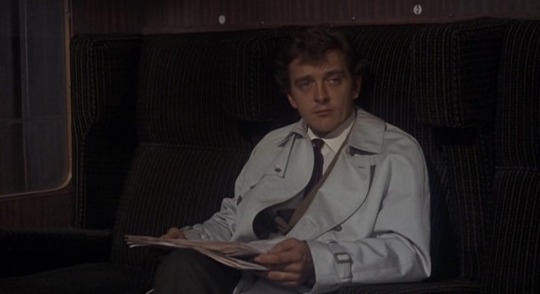
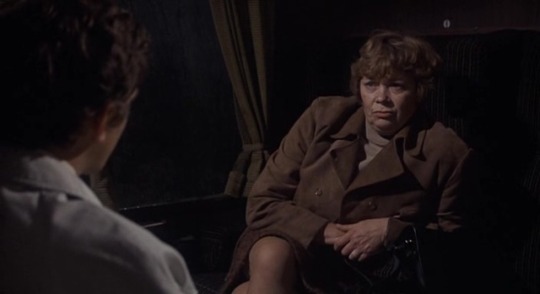
Fragment of Fear | Richard C. Sarafian | 1970
David Hemmings, and Mary Wimbush as Bunface
9 notes
·
View notes
Text
THE PALE HORSE
Can death be brought about by remote control? Historian Mark Easterbrooke discovers that witchcraft and black magic can induce a terrifying series of events.
Dramatized by Michael Bakewell.
Jeremy Clyde as Mark Easterbrooke Stephanie Cole as Ariadne Oliver, Terence Alexander as Mr Venables, Mary Wimbush as Thyrza Grey, Hilda Schroder as Bella, Stephen Hodson as Jim Corrigan, Jonathan Adams as Inspector Lejeune and Federay Holmes as Ginger. Jill Graham as Sybil, Jillie Meers as Rhoda Despard and John Evitts as Colonel Despard, John Fleming as Zachariah Osborne, John Baddeley as Bradley, Geraldine Fitzgerald as Hermia, Philip Anthony as Rev. Calthrop and John Church as Soames-White. Matthew Morgan as Ardingly, Teresa Gallagher as Poppy and Keith Drinkel as Father Gorman, David Thorpe as Mike, Mike Hudson as Eileen Brandon, Melinda Walker as Mrs Tuckerton, Diana Payan as Mrs Coppins, Sandra James Young as Mrs Davis and Kate Binchy as Mrs Gerahty.
Director: Enyd Williams
0 notes
Photo

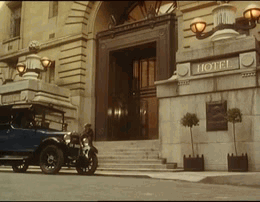
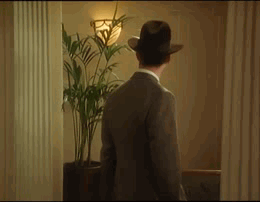
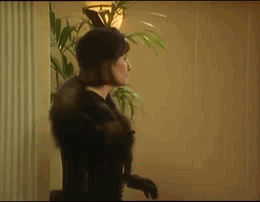


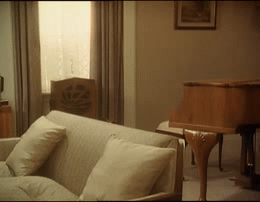
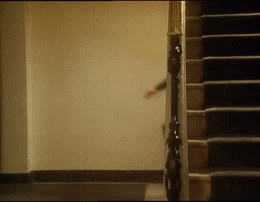

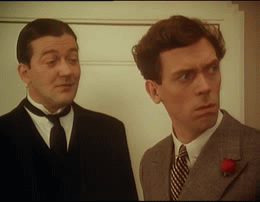
Dognapping.
9 notes
·
View notes
Photo

Mary Wimbush (Elvira)
Vampire Circus ~ 1972
0 notes
Text
Harold Washington

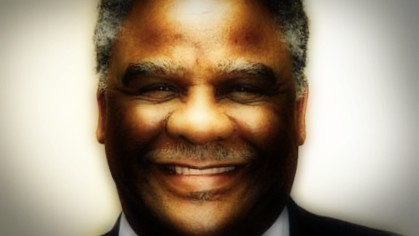
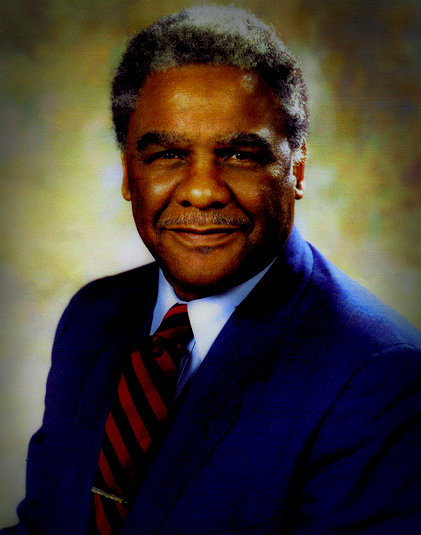


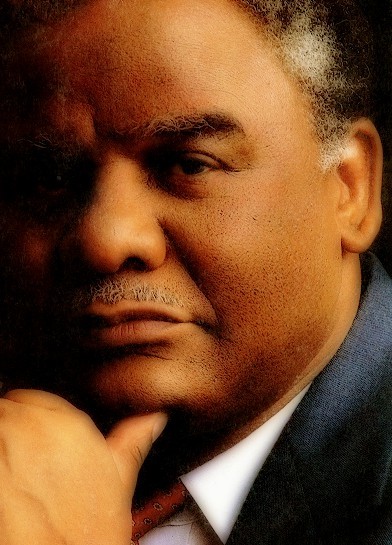
Harold Lee Washington (April 15, 1922 – November 25, 1987) was an American lawyer and politician elected as the 51st Mayor of Chicago in February 1983. He was the first African-American to serve as Mayor of Chicago, in office from April 29, 1983 until his death on November 25, 1987. Washington was also a member of the U.S. House of Representatives from 1981 to 1983 representing the Illinois first district, and also previously served in the Illinois State Senate and the Illinois House of Representatives from 1965 until 1976.
Early years
Harold Washington was born on April 15, 1922, to Roy and Bertha Washington. His father had been one of the first precinct captains in the city, a lawyer and a Methodist minister. His mother, Bertha, left a small farm near Centralia, Illinois, to seek her fortune in Chicago as a singer. She married Roy Washington soon after arriving in Chicago and the couple had three children, one named Kevin and the other named Ramon Price (from a later marriage), who was a former artist and eventually became chief curator of The DuSable Museum of African American History.
Washington grew up in Bronzeville, a Chicago neighborhood that was the center of black culture for the entire Midwest in the early and middle 20th century. Washington attended DuSable High School, then a newly established racially segregated public high school, and was a member of its first graduating class. In a 1939 citywide track meet, Washington placed first in the 110 meter high hurdles event, and second in the 220 meter low hurdles event. Between his junior and senior year of high school, Washington dropped out, claiming that he no longer felt challenged by the coursework. He worked at a meat-packing plant for a time before his father helped him get a job at the U.S. Treasury branch in the city. There he met Dorothy Finch, whom he married soon after; Washington was 19 years old and Dorothy was 17 years old. Seven months later, the U.S. was drawn into World War II with the bombing of Pearl Harbor by the Japanese on Sunday, December 7, 1941.
Military service
In 1942, Washington was drafted into the United States Army for the war effort and after basic training, sent overseas as part of a racially segregated unit of the U.S. Army Air Corps unit of Engineers. After the American invasion of the Philippines in 1944, on Leyte Island and later the main Luzon island, Washington was part of a unit building runways for bombers, protective fighter aircraft, refueling planes, and returning damaged aircraft. Eventually, Washington rose to the rank of First Sergeant in the Army Air Corps (later in the war renamed the U.S. Army Air Forces).
Roosevelt College
In the summer of 1946, Washington, aged 24 and a war veteran, enrolled at Roosevelt College (now Roosevelt University). Washington joined other groups of students not permitted to enroll in other local colleges. Local estimates placed the student population of Roosevelt College at about 1/8 black and 1/2 Jewish. A full 75% of the students had enrolled because of the "nondiscriminatory progressive principles." He chaired a fund-raising drive by students, and then was named to a committee that supported city-wide efforts to outlaw "restrictive covenants" in housing, the legal means by which minorities (especially blacks ("negroes") and, to a lesser extent, Jews) were prohibited from purchasing real estate in predominantly white neighborhoods of the city.
In 1948, after the college had moved to the Auditorium Building, Washington was elected the third president of Roosevelt's student council. Under his leadership, the student council successfully petitioned the college to have student representation on Roosevelt's faculty committees. At the first regional meeting of the newly founded National Student Association in the spring of 1948, Washington and nine other delegates proposed student representation on college faculties, and a "Bill of Rights" for students; both measures were roundly defeated. The next year, Washington went to the state capital at Springfield to protest Illinois legislators' coming probe of "subversives". The probe of investigation would outlaw the Communist Party and require "loyalty oaths" for teachers. He led students' opposition to the bills, although they would pass later in 1949.
During his Roosevelt College years, Washington came to be known for his stability. His friends said that he had a "remarkable ability to keep cool", reason carefully and walk a middle line. Washington intentionally avoided extremist activities, including street actions and sit-ins against racially segregated restaurants and businesses. Overall, Washington and other radical activists ended up sharing a mutual respect for each other, acknowledging both Washington's pragmatism and the activists' idealism. With the opportunities found only at Roosevelt College in the late 1940s, Washington's time at the Roosevelt College proved to be pivotal. Washington graduated in August 1949, with a Bachelor of Arts (B.A.) degree. In addition to his activities at Roosevelt, he was a member of Phi Beta Sigma fraternity.
Northwestern University School of Law
Washington then applied and was admitted to study law at the Northwestern University School of Law in Chicago. During this time, Washington was divorced from Dorothy Finch. By some accounts, Harold and Dorothy had simply grown apart after Washington was sent overseas during the war during the first year of his marriage. Others saw both as young and headstrong, the relationship doomed from the beginning. Another friend of Washington's deemed Harold "not the marrying kind." He would not marry again, but continued to have relationships with other women; his longtime secretary is said to have said, "If every woman Harold slept with stood at one end of City Hall, the building would sink five inches into LaSalle Street!".
At Northwestern Law School, Washington was the only black student in his class (there were six women in the class, one of them being Dawn Clark Netsch). As at Roosevelt, he entered school politics. In 1951, his last year, he was elected treasurer of the Junior Bar Association (JBA). The election was largely symbolic, however, and Washington's attempts to give the JBA more authority at Northwestern were largely unsuccessful. On campus, Washington joined the Nu Beta Epsilon fraternity, largely because he and the other minorities which constituted the fraternity were blatantly excluded from the other fraternities on campus. Overall, Washington stayed away from the activism that defined his years at Roosevelt. During the evenings and weekends, he worked to supplement his GI Bill income. He received his J.D. in 1952.
Legislative political career
Working for Metcalfe (1951–65)
From 1951 until he was first slated for election in 1965, Washington worked in the offices of the 3rd Ward Alderman, former Olympic athlete Ralph Metcalfe. Richard J. Daley was elected party chairman in 1952. Daley replaced C.C. Wimbush, an ally of William Dawson, on the party committee with Metcalfe. Under Metcalfe, the 3rd Ward was a critical factor in Mayor Daley's 1955 mayoral election victory and ranked first in the city in the size of its Democratic plurality in 1961. While working under Metcalfe, Washington began to organize the 3rd Ward's Young Democrats (YD) organization. At YD conventions, the 3rd Ward would push for numerous resolutions in the interest of blacks. Eventually, other black YD organizations would come to the 3rd Ward headquarters for advice on how to run their own organizations. Like he had at Roosevelt College, Washington avoided radicalism and preferred to work through the party to engender change. While working with the Young Democrats, Washington met Mary Ella Smith. They dated for the next 20 years, and in 1983 Washington proposed to Smith. In an interview with the Chicago Sun-Times, Smith said that she never pressed Washington for marriage because she knew Washington's first love was politics, saying, "He was a political animal. He thrived on it, and I knew any thoughts of marriage would have to wait. I wasn't concerned about that. I just knew the day would come." In 1960, with Lemuel Bentley, Bennett Johnson, Luster Jackson and others, Washington founded the Chicago League of Negro Voters, one of the first African-American political organizations in the city. In its first election, Bentley drew 60,000 votes for city clerk. After dropping out of view after the elections, it resurfaced as the group Protest at the Polls in 1963. Washington participated in the planning process to further the goals of 3rd Ward YDs. By 1967, the independent candidates had gained traction within the black community, winning several aldermanic seats; in 1983, the League of Negro Voters were instrumental in Washington's run for mayor. By then, the YDs were losing influence in the party, as more black voters supported independent candidates.
Illinois House (1965–1976)
After the state legislature failed to reapportion districts as required by the census every ten years, an at-large election was held in January 1965 to elect 177 representatives. With the Republicans and Democrats combining to slate only 118 candidates, independent voting groups seized the opportunity to slate candidates. The League of Negro Voters created a "Third Slate" of 59 candidates, announcing the slate on June 27, 1964. Shortly afterwards, Daley put together a slate including Adlai Stevenson III and Washington. The Third Slate was then thrown out by the Illinois Election Board because of "insufficient signatures" on the nominating petitions. In the election, Washington received the second-largest amount of ballots, behind Stevenson. Washington's years in the Illinois House were marked by tension with Democratic Party leadership. In 1967, he was ranked by the Independent Voters of Illinois (IVI) as the fourth-most independent legislator in the Illinois House and named Best Legislator of the Year. His defiance of the "idiot card", a sheet of paper that directed legislators' votes on every issue, attracted the attention of party leaders, who moved to remove Washington from his legislative position. Daley often told Metcalfe to dump Washington as a candidate, but Metcalfe did not want to risk losing the 3rd Ward's Young Democrats, who were mostly aligned with Washington.
Washington backed Renault Robinson, a black police officer and one of the founders of the Afro-American Patrolmen’s League (AAPL). The aim of the AAPL was to fight racism directed against minority officers by the rest of the predominantly white department. Soon after the creation of the group, Robinson was written up for minor infractions, suspended, reinstated, and then placed on the graveyard shift to a single block behind central police headquarters. Robinson approached Washington to fashion a bill creating a civilian review board, consisting of both patrolmen and officers, to monitor police brutality. Both black independent and white liberal legislators refused to back the bill, afraid to challenge Daley's grip on the police force.
After Washington announced he would support the AAPL, Metcalfe refused to protect him from Daley. Washington believed he had the support of John Touhy, Speaker of the House and a former party chair. Instead, Touhy criticized Washington and then allayed Daley's anger. In exchange for the party's backing, Washington would serve on the Chicago Crime Commission, the group Daley formed to investigate the AAPL's charges. The commission promptly found the AAPL's charges "unwarranted". An angry and humiliated Washington admitted that on the commission, he felt like Daley's "showcase nigger". In 1969, Daley removed Washington's name from the slate; only by the intervention of Cecil Partee, a party loyalist, was Washington reinstated. The Democratic Party supported Jim Taylor, a former professional boxer, Streets and Sanitation worker, over Washington. With Partee and his own ward's support, Washington defeated Taylor. His years in the House of Representatives were focused on becoming an advocate for black rights. He continued work on the Fair Housing Act, and worked to strengthen the state's Fair Employment Practices Commission (FEPC). In addition, he worked on a state Civil Rights Act, which would strengthen employment and housing provisions in the federal Civil Rights Act of 1964. In his first session, all of his bills were sent to committee or tabled. Like his time in Roosevelt College, Washington relied on parliamentary tactics (e.g., writing amendments guaranteed to fail in a vote) to enable him to bargain for more concessions.
Washington also passed bills honoring civil rights figures. He passed a resolution honoring Metcalfe, his mentor. He also passed a resolution honoring James J. Reeb, a Unitarian minister who was beaten to death in Selma, Alabama by a segregationist mob. After the assassination of Martin Luther King, Jr., he introduced a bill aimed at making King's birthday a state holiday; it was tabled and later vetoed. It was not until 1973 that Washington was able, with Partee's help in the Senate, to have the bill enacted and signed by the governor. In 1975, Washington was named chairman of the Judiciary Committee with the election of William A. Redmond as Speaker of the House. The same year, Partee, now President of the Senate and eligible for his pension, decided to retire from the Senate. Although Daley and Taylor declined at first, at Partee's insistence, Washington was slated for the seat and received the party's support. In 1976, Washington was elected to the Illinois Senate.
Illinois Senate (1976–1980)Human Rights Act of 1980
In the Illinois Senate, Washington's main focus worked to pass 1980's Illinois Human Rights Act. Legislators rewrote all of the human rights laws in the state, restricting discrimination based on "race, color, religion, sex, national origin, ancestry, age, marital status, physical or mental disability, military status, sexual orientation, or unfavorable discharge from military service in connection with employment, real estate transactions, access to financial credit, and the availability of public accommodations." The bill's origins began in 1970 with the rewriting of the Illinois Constitution. The new constitution required all governmental agencies and departments to be reorganized for efficiency. Republican governor James R. Thompson reorganized low-profile departments before his re-election in 1978. In 1979, during the early stages of his second term and immediately in the aftermath of the largest vote for a gubernatorial candidate in the state's history, Thompson called for human rights reorganization. The bill would consolidate and remove some agencies, eliminating a number of political jobs. Some Democratic legislators would oppose any measure backed by Washington, Thompson and other Republican legislators.
For many years, human rights had been a campaign issue brought up and backed by Democrats. Thompson's staffers brought the bill to Washington and other black legislators before it was presented to the legislature. Washington made adjustments in anticipation of some legislators' concerns regarding the bill, before speaking for it in April 1979. On May 24, 1979, the bill passed the Senate by a vote of 59 to one, with two voting present and six absent. The victory in the Senate was attributed by a Thompson staffer to Washington's "calm noncombative presentation". However, the bill stalled in the house. State Representative Susan Catania insisted on attaching an amendment to allow women guarantees in the use of credit cards. This effort was assisted by Carol Moseley Braun, a representative from Hyde Park. State Representatives Jim Taylor and Larry Bullock introduced over one hundred amendments, including the text of the first ten amendments to the U.S. Constitution, to try to stall the bill. With Catania's amendment, the bill passed the House, but the Senate refused to accept the amendment. On June 30, 1979, the legislature adjourned.
U.S. House (1980–1983)
In 1980, Washington was elected to the U.S. House of Representatives in Illinois' 1st Congressional District. He defeated incumbent Representative Bennett Stewart in the Democratic primary. Anticipating that the Democratic Party would challenge him in his bid for re-nomination in 1982, Washington spent much of his first term campaigning for re-election, often travelling back to Chicago to campaign. Washington missed many House votes, an issue that would come up in his campaign for mayor in 1983. Washington's major congressional accomplishment involved legislation to extend the Voting Rights Act, legislation that opponents had argued was only necessary in an emergency. Others, including Congressman Henry Hyde, had submitted amendments designed to seriously weaken the power of the Voting Rights Act.
Although he had been called "crazy" for railing in the House of Representatives against deep cuts to social programs, Associated Press political reporter Mike Robinson noted that Washington worked "quietly and thoughtfully" as the time came to pass the act. During hearings in the South regarding the Voting Rights Act, Washington asked questions that shed light on tactics used to prevent African Americans from voting (among them, closing registration early, literacy tests, and gerrymandering). After the amendments were submitted on the floor, Washington spoke from prepared speeches that avoided rhetoric and addressed the issues. As a result, the amendments were defeated, and Congress passed the Voting Rights Act Extension. By the time Washington faced re-election in 1982, he had cemented his popularity in the 1st Congressional District. Jane Byrne could not find one serious candidate to run against Washington for his re-election campaign. He had collected 250,000 signatures to get on the ballot, although only 610 signatures (0.5% of the voters in the previous election) were required. With his re-election to Congress locked up, Washington turned his attention to the next Chicago mayoral election.
Mayor of Chicago (1983–1987)
In the February 22, 1983, Democratic mayoral primary, more than 100,000 new voters registered to vote led by a coalition that included the Latino reformed gang Young Lords led by Jose Cha Cha Jimenez. On the North and Northwest Sides, the incumbent mayor Jane Byrne led and future mayor Richard M. Daley, son of the late Mayor Richard J. Daley, finished a close second. Harold Washington had massive majorities on the South and West Sides. Southwest Side voters overwhelmingly supported Daley. Washington won with 37% of the vote, versus 33% for Byrne and 30% for Daley. Although winning the Democratic primary is normally tantamount to election in heavily Democratic Chicago, after his primary victory Washington found that his Republican opponent, former state legislator Bernard Epton (earlier considered a nominal stand-in), was supported by many high-ranking Democrats and their ward organizations, including the chairman of the Cook County Democratic Party, Alderman Edward "Fast Eddie" Vrdolyak.
Epton's campaign referred to, among other things, Washington's conviction for failure to file income tax returns (he had paid the taxes, but had not filed a return). Washington, on the other hand, stressed reforming the Chicago patronage system and the need for a jobs program in a tight economy. In the April 12, 1983, mayoral general election, Washington defeated Epton by 3.7%, 51.7% to 48.0%, to become mayor of Chicago. Washington was sworn in as mayor on April 29, 1983, and resigned his Congressional seat the following day. During his tenure as mayor, Washington lived at the Hampton House apartments in the Hyde Park neighborhood of Chicago. He created the city's first environmental-affairs department under the management of longtime Great Lakes environmentalist Lee Botts. Washington's first term in office was characterized by conflict with the city council dubbed "Council Wars", referring to the then-recent Star Wars films and caused Chicago to be nicknamed "Beirut on the Lake". A 29-alderman City Council majority refused to enact Washington's legislation and prevented him from appointing nominees to boards and commissions. First-term challenges included city population loss, increased crime, and a massive decrease in ridership on the Chicago Transit Authority (CTA).
The 29, also known as the "Vrdolyak 29", were led by Alderman Ed Vrdolyak and Finance Chair Edward Burke. Parks superintendent Edmund Kelly also opposed the mayor. The three were known as "the Eddies" and were supported by the younger Daley (now State's Attorney), U.S. Congressmen Dan Rostenkowski and William Lipinski, and much of the Democratic Party. During his first city council meeting, Washington and the 21 supportive aldermen walked out of the meeting after a quorum had been established. Vrdolyak and the other 28 then chose committee chairmen and assigned aldermen to the various committees. Later lawsuits submitted by Washington and others were dismissed because it was determined that the appointments were legally made. Washington ruled by veto. The 29 lacked the 30th vote they needed to override Washington's veto; female and African American aldermen supported Washington despite pressure from the Eddies. Meanwhile, in the courts, Washington kept the pressure on to reverse the redistricting of city council wards that the city council had created during the Byrne years. During special elections in 1986, victorious Washington-backed candidates in the first round ensured at least 24 supporters in the city council. Six weeks later, when Marlene Carter and Luís Gutiérrez won run-off elections, Washington had the 25 aldermen he needed. His vote as president of the City Council enabled him to break 25-25 tie-votes and enact his programs.
Re–Election (April 1987)
Washington defeated former mayor Jane Byrne in the February 24, 1987 Democratic mayoral primary by 7.2%, 53.5% to 46.3%, and in the April 7, 1987 mayoral general election defeated Vrdolyak (Illinois Solidarity Party) by 11.8%, 53.8% to 42.8%, with Northwestern University business professor Donald Haider (Republican) getting 4.3%, to win reelection to a second term as mayor. Cook County Assessor Thomas Hynes (Chicago First Party), a Daley ally, dropped out of the race 36 hours before the mayoral general election. During Washington's short second term, the Eddies fell from power: Vrdolyak became a Republican, Kelly was removed from his powerful parks post, and Burke lost his Finance Committee chairmanship.
Political Education Project (PEP)
From March 1984 to 1987, Harold Washington's Political Education Project (PEP) served as Washington’s political arm, organizing both Washington’s campaigns and the campaigns of his political allies. Harold Washington established the Political Education Project in 1984. This organization supported Washington’s interests in electoral politics beyond the Office of the Mayor. PEP helped organize political candidates for statewide elections in 1984 and managed Washington's participation in the 1984 Democratic National Convention as a "favorite son" presidential candidate. PEP used its political connections to support candidates such as Luis Gutiérrez and Jesús "Chuy" García through field operations, voter registration and Election Day poll monitoring. Once elected, these aldermen helped break the stalemate between Washington and his opponents in the city council. Due to PEP’s efforts, Washington’s City Council legislation gained ground and his popularity grew as the 1987 mayoral election approached. In preparation for the 1987 mayoral election, PEP formed the Committee to Re-Elect Mayor Washington. This organization carried out fundraising for the campaign, conducted campaign events, and coordinated volunteers. PEP staff members, such as Joseph Gardner and Helen Shiller, went on to play leading roles in Chicago politics. The organization disbanded upon Harold Washington’s death. Harold Washington's Political Education Project Records is an archival collection detailing the organization's work. It is located in the Chicago Public Library Special Collections, Harold Washington Library Center, Chicago, Illinois.
Legal issues
In addition to Daley's strong-armed tactics, Washington's time in the Illinois House was also marred by problems with tax returns and allegations of not performing services owed to his clients. In her biography, Levinsohn questions whether the timing of Washington's legal troubles was politically motivated. In November 1966, Washington was re-elected to the house over Daley's strong objections; the first complaint was filed in 1964; the second was filed by January 1967. A letter asking Washington to explain the matter was sent on January 5, 1967. After failing to respond to numerous summons and subpoenas, the commission recommend a five-year suspension on March 18, 1968. A formal response to the charges did not occur until July 10, 1969. In his reply, Washington said that "sometimes personal problems are enlarged out of proportion to the entire life picture at the time and the more important things are abandoned." In 1970, the Board of Managers of the Chicago Bar Association ruled that Washington's license be suspended for only one year, not the five recommended; the total amount in question between all six clients was $205.
In 1971, Washington was charged with failure to file tax returns for four years, although the Internal Revenue Service (IRS) claimed to have evidence for nineteen years; top campaign aides later said that nineteen was closer to the truth. Judge Sam Perry noted that he was "disturbed that this case ever made it to my courtroom" — while Washington had paid his taxes, he ended up owing the government a total of $508 as a result of not filing his returns. Typically, the IRS handled such cases in civil court, or within its bureaucracy. Washington pleaded "no contest" and was sentenced to forty days in Cook County Jail, a $1,000 fine, and three years probation.
Death and funeral
On November 25, 1987, at 11:00 a.m., Chicago Fire Department paramedics were called to City Hall. Washington's press secretary, Alton Miller, had been discussing school board issues with the mayor when Washington suddenly slumped over on his desk, falling unconscious. After failing to revive Washington in his office, paramedics rushed him to Northwestern Memorial Hospital. Further attempts to revive him failed, and Washington was pronounced dead at 1:36 p.m. At Daley Plaza, Patrick Keen, project director for the Westside Habitat for Humanity, announced Washington's official time of death to a separate gathering of Chicagoans. Initial reactions to the pronouncement of his death were of shock and sadness, as many blacks believed that Washington was the only top Chicago official who would address their concerns. Thousands of Chicagoans attended his wake in the lobby of City Hall between November 27 and November 29, 1987. On November 30, 1987, Rev. B. Herbert Martin officiated Washington's funeral service in Christ Universal Temple at 119th Street and Ashland Avenue in Chicago. After the service, Washington was buried in Oak Woods Cemetery on the South Side of Chicago.
Aftermath
Immediately after Washington's death, rumors about how Washington died began to surface. On January 6, 1988, Dr. Antonio Senat, Washington's personal physician, denied "unfounded speculations" that Washington had cocaine in his system at the time of his death, or that foul play was involved. Cook County Medical Examiner Robert J. Stein performed an autopsy on Washington and concluded that Washington had died of a heart attack. Washington had weighed 284 pounds (129 kg), and suffered from hypertension, high cholesterol levels, and an enlarged heart. On June 20, 1988, Alton Miller again indicated that drug reports on Washington had come back negative, and that Washington had not been poisoned prior to his death. Dr. Stein stated that the only drug in Washington's system had been lidocaine, which is used to stabilize the heart after a heart attack takes place. The drug was given to Washington either by paramedics, or by doctors at Northwestern Memorial Hospital. School of the Art Institute of Chicago student David Nelson painted Mirth & Girth, a caricature that depicted Washington wearing women's lingerie and holding a pencil, which was briefly displayed in a hallway at the school on May 11, 1988. The painting kicked off a First Amendment and civil rights controversy between Art Institute students and black aldermen. Nelson and the ACLU eventually split a US$95,000 (1994, US$138,000 in 2008) settlement from the city. Coincidentally, Bernard Epton, Washington's opponent in the 1983 general election, followed him in death just 18 days later, on December 13, 1987.
Legacy
Despite the bickering in City Council, Washington seemed to relish his role as Chicago's ambassador to the world. At a party held shortly after his re-election on April 7, 1987, he said to a group of supporters, "In the old days, when you told people in other countries that you were from Chicago, they would say, 'Boom-boom! Rat-a-tat-tat!' Nowadays, they say [crowd joins with him], 'How's Harold?'!"
In later years, various city facilities and institutions were named or renamed after the late mayor to commemorate his legacy. The new building housing the main branch of the Chicago Public Library, located at 400 South State Street, was named the Harold Washington Library Center. The Chicago Public Library Special Collections, located on the building's 9th floor, house the Harold Washington Archives and Collections. These archives hold numerous collections related to Harold Washington's life and political career.
Five months after Mayor Washington's sudden death in office, a ceremony was held on April 19, 1988, changing the name of Loop College, one of the City Colleges of Chicago, to Harold Washington College. Harold Washington Elementary School in Chicago's Chatham neighborhood is also named after the former mayor. In August 2004, the 40,000-square-foot (3,700 m2) Harold Washington Cultural Center was opened to the public in the Bronzeville neighborhood. Across from the Hampton House apartments where Washington lived, a city park was renamed Harold Washington Park, which was known for "Harold's Parakeets", a colony of feral monk parakeets that inhabited Ash Trees in the park. A building on the campus of Chicago State University is named Harold Washington Hall.
Wikipedia
7 notes
·
View notes